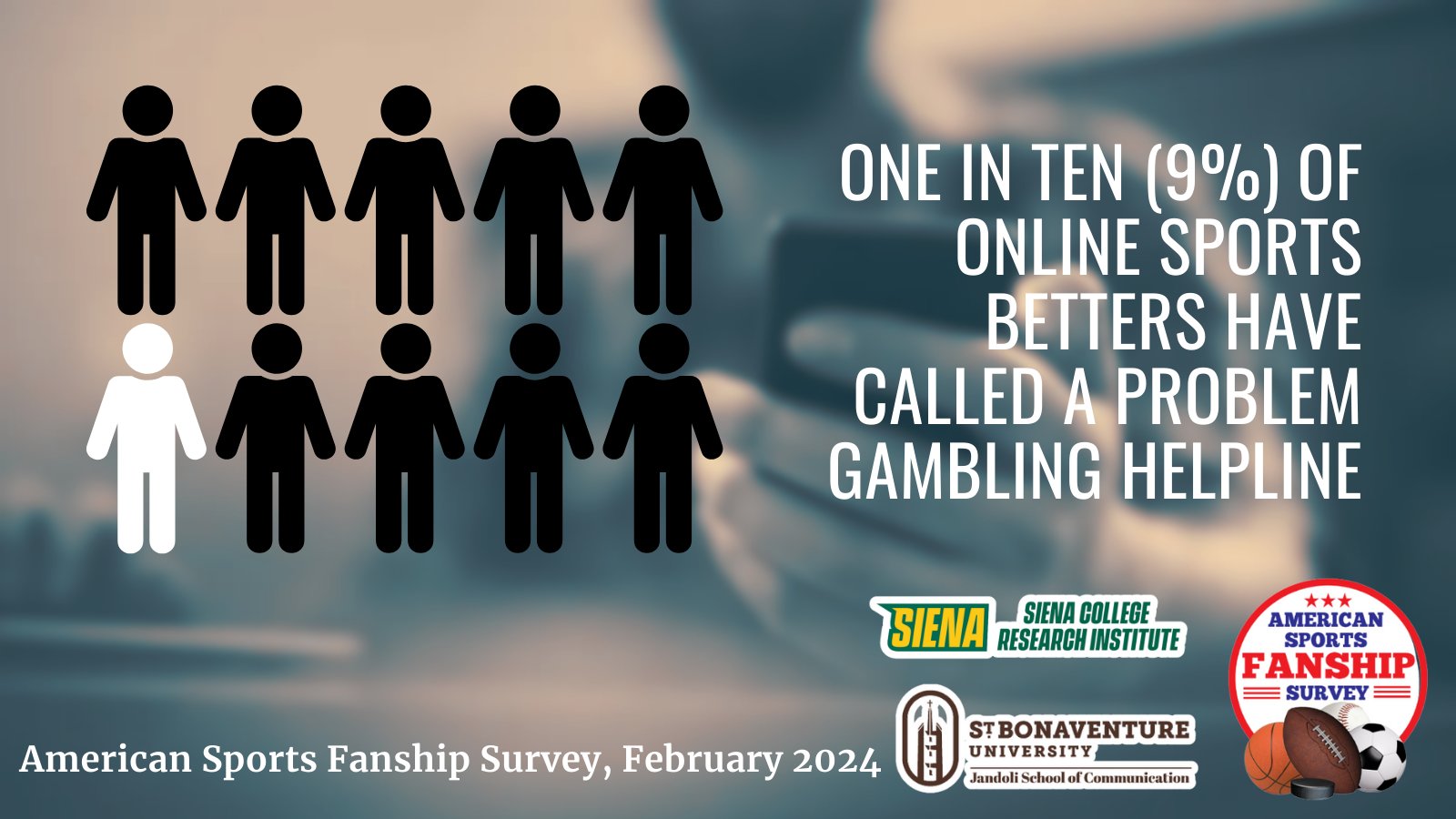
In one of the busiest weeks for bookmakers and bettors, the Siena College Research Institute released a poll that finds 39 percent of Americans bet on sports, and 19 percent use an online betting app.
The poll reveals the vast majority of online sports bettors say it’s fun and exciting (93 percent); makes the games more interesting (85 percent); and they believe they can make money (80 percent). More than two-thirds of online gamblers (71 percent) signed up with a promotion with “free money” offered by betting apps.
However, the poll also found that 15 percent of U.S. residents know someone with an online sports betting problem. Of those who bet online, nearly 40 percent said they have felt ashamed after losing or betting more than they should.
Eighteen percent of online bettors admit they have lost money needed to meet financial obligations
Overall, 65 percent of Americans polled said online sports betting “will create compulsive gamblers that will cause pain to them and their families.”
A record 67.8 million American adults are expected to bet on Super Bowl LVIII, a 35 percent increase from 2023, according to a the American Gaming Association, the national trade group representing the U.S. casino industry. Bettors plan to wager an estimated $23.1 billion on this year’s big game, up from $16 billion last year.
“With 75 percent of Americans saying they’ve seen ads for online sportsbooks, it’s not surprising that one in five have an account,” said Don Levy, director of the Siena College Research Institute. “Bettors say it’s fun, and a plurality of all Americans, 48-40 percent, agree that online sports betting is a great form of entertainment allowing fans to gamble responsibly.
“But, nearly 40 percent of bettors have felt ashamed about their gambling, or bet more than they should, and one in five have lost money they needed or lied to someone about their betting,” Levy added. “Over half have chased a bet, that is, increased the amount they bet in hopes of getting money back after a loss, and 22 percent have had someone express concern to them about their usage of online sportsbooks. Still, only 9 percent of bettors have called a problem gambling hotline or sought help.”
The poll of more than 3,000 U.S. residents was conducted the first week of January in conjunction with St. Bonaventure University’s Jandoli School of Communication.
Among some of the poll’s findings about online sports bettors:
- 33 percent are men age 18-34; 24 percent are men age 35-49, 15 percent are women age 18-34 and 12 percent are women age 35-49. Only about 15 percent are 50 years old or older.
- 91 percent have a betting app on their smartphone.
- 35 percent signed up within the past year, 35 percent signed up more than a year ago but less than two years ago and 29 percent have had an account for more than two years.
- 63 percent have more than one online sportsbook account.
- 59percent bet at least once a week, 24 percent bet 3 or more times a week.
- 36 percent say they win more than lose, 33 percent say they break even while 30 percent say they lose more than win.
- 59percent have bet $100 or more in a day, 24 percent have bet $500 or more in a single day
“While sports betting is popular among sports fans, particularly among young men, significant concerns remain as two-thirds worry that it creates fans with gambling problems,” said Aaron Chimbel, dean of St. Bonaventure University’s Jandoli School of Communication. “In addition, nearly half of all Americans — including more than 40% of avid fans — think online betting will corrupt organized sports, and Americans overwhelmingly support stronger regulations to protect consumers.”
The poll was conducted January 2 – 7, 2024, among 3071 responses drawn from a proprietary online panel of United States Residents. Data was statistically adjusted by age, region, race/ethnicity, education, and gender to ensure representativeness. It has an overall margin of error of 1.9 percentage points including the design effects resulting from weighting.









